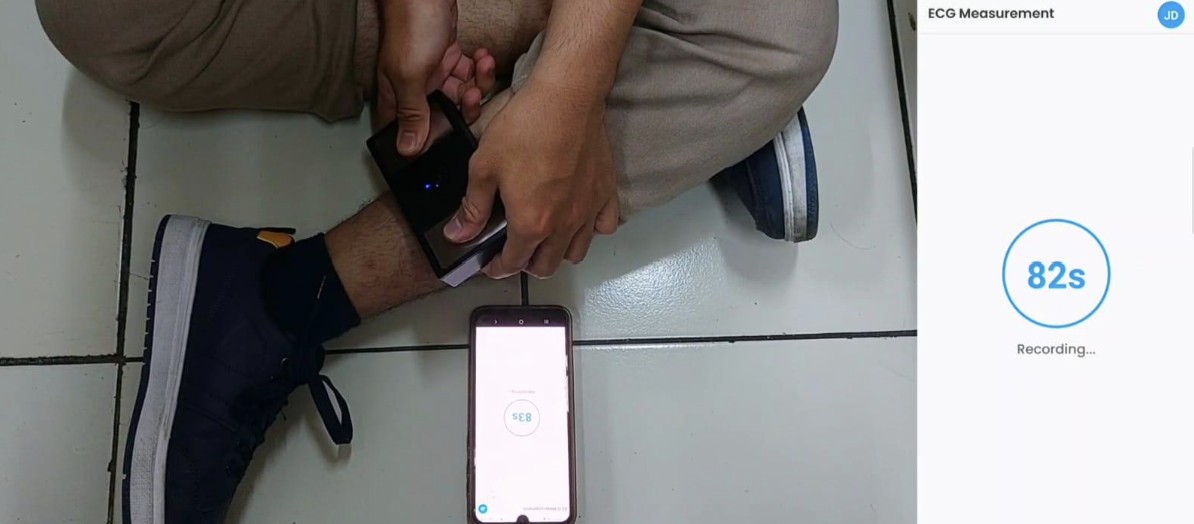KM ITB Community Class Fosters the Spirit of Community Service
By Adi Permana
Editor Adi Permana

BANDUNG, itb.ac.id – Community service is a form of scientific, technological, and cultural direct implementation to the community. ITB students' are provided with many choices and opportunities to initiate a community service that suits their interests. Community services in ITB are often initiated by student organizations such as student unions and campus clubs.
Through the Directorate General of Community Movement Education, the ITB Student Association held a Community Class on Friday (10/2/2023). "We want to introduce community service and its urgency. If a student is already interested in community service, they can look for further information in this class," said Hilmy Taqiyuddin (Ocean Engineering, 2020).
This event was held at GKU II Auditorium Jatinangor Kampus and was titled "Social Mapping Based on Communal Ethic and Work Implementation in Community Service." The first topic regarding social mapping was presented by Mohammad Fathan (Civil Engineering, 2021) from Pelita Muda ITB.
"Social mapping is a community service approach, which is a form of data and information gathering. Later, the result from social mapping will be used at the design thinking stage to try to solve problems that exist in the community," he explained.
He also explained various tools that can be utilized to help this social mapping process. Those tools include Place-Activity-People (PAP) table, potential needs curve, power interest curve, forum group discussion, and social network.
"Talking about social mapping, we often do it without a purpose, without knowing what our objective is. So it is better if, before social mapping, we already know what we will develop or what topic we will bring to the village to be studied further in social mapping. From there we will know what is the best tool or approach," explained Fathan.
There are several important points that we need to look into before we carry out a social mapping. You need to sharpen your senses so that you can get the full image. Moreover, the language barrier becomes crucial when we visit a location with a different regional language.
"Another important key is building communities' trust. We also need to place ourselves and get close to communities. Such as, by following their custom and eating according to their way. However we also need to be aware and retain a neutral perception because we will not be there for long," he said.
The next speaker was Graha Gandana (Petroleum Engineering, 2015) who has a lot of experience in community service. He talked about work implementation in the community. "Work implementation process begins with pre-execution which is composed of social mapping, problems identification, and forming partnership with various stakeholders. Followed by execution and lastly a post-execution which covers evaluation and controlling."
According to Gege, the work left behind must be sustainable in order to provide positive externalities and significant benefits. Sustainable community service is hoped to create a more prosperous and self-reliant community.

"How to be sustainable? We need a project that can really answer the problem, partner with the right people, and control," he said.
However, in reality, community service does not always go without trouble. Sometimes we as community service practitioners are at odds with the community itself. Gege emphasized the possibility of cultural relativism. "What we perceive as the right does not always align with them, and vice versa. Difference is not a problem, but a challenge that we need to check its truth to make sure the information is not biased."
At the end of the presentation, he said that even if your intention is good, you still need to have relevant knowledge. In line with this Community Class, Hilmy as the Directorate General hopes that community service in ITB can be carried out more massively and impactful. "We want to improve the quantity of community service participants and the quality of the community service programs," he concludes.
Reporter: Maharani Rachmawati Purnomo (Oceanography, 2020)
Translator: Favian Aldilla R (Civil Engineering, 2019)

.jpg)

.jpg)
.jpg)
.jpg)

